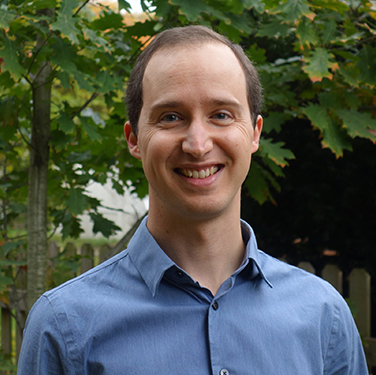Andy Brubaker

How I got here:
I joined the Humane Genetics team in the fall of 2021. I started my career as a classroom teacher, teaching students in grades 7-12. In my 11 years in the classroom, I taught many different subjects, but a majority of my teaching load consisted of genetics and introductory biology classes. In my classes, I worked to develop curriculum that was rigorous and relevant to students’ lives. Specifically in my Genetics & Ethics class, my students and I investigated issues at the intersection of science and society. We reflected on ways that an accurate understanding of genetics affects society as well as ways that our values and identities as individuals impact the way we view scientific knowledge. But what I lacked as an individual educator was adequate access to modern genetics knowledge and a team with which to collaborate on this type of work. A desire for both pointed me in the direction of Brian Donovan’s research with the Humane Genetics program.
What has most excited me in my time with the Humane Genetics program has been the focus on using science education to combat and reduce racial and gender bias. Students are learning advanced genetics concepts, and they’re applying them in a way that is meaningful. They’re learning what current genetics research can (and can’t) tell us about race, sex, and gender. When I was a classroom teacher, I saw a real need for this curriculum in our society and education system. I’m excited to be a part of a team that is bringing it to life.
How my identity intersects with my work:
Growing up, I could envision myself as a scientist or teacher because I frequently saw my identity reflected in those fields. While our role models don’t need to look like us to influence us, I understood implicitly that my identity as a white male would not interfere with my choice to pursue a specific career or interest. I also come from a family of multiple generations of educators. While being an educator is a mutable part of my identity (I could always stop if I chose), it has given me a perspective on the importance of education and the opportunities it can afford. The privilege I experienced growing up with a mother who was a college professor was two-fold: I was inspired by the positive power of education and provided with expert knowledge on how to navigate the complex educational system. Dismantling systems that benefit some at the expense of others needs to be the work of everyone. My hope is that the Humane Genetics program can show more students that barriers to success based on identity are not natural – they are socially constructed. And since they are constructed, I hope this program motivates everyone to go about the work that needs to be done to deconstruct them.
What I do when working:
As an associate science educator, I work primarily on curriculum development. This involves long-scale unit planning, lesson design, and turning research design ideas into teaching materials.
Other work I’m interested in:
I led professional learning for several years when I was a public school teacher. I enjoy working with teachers to envision new ways to teach biology that are relevant to students’ lives.
What I do with the rest of my life:
I enjoy being active outdoors with my wife and young child, singing, and discovering new recipes. I participated in lots of long-distance endurance activities in my younger days, but the slower (but still absurdly energetic) pace of life with a young kid has given me a refreshing perspective on the adventures that exist close to home. These days, I’m equally likely to be munching on recently discovered wood sorrel in our backyard with my son as I am to be biking to the climbing gym.